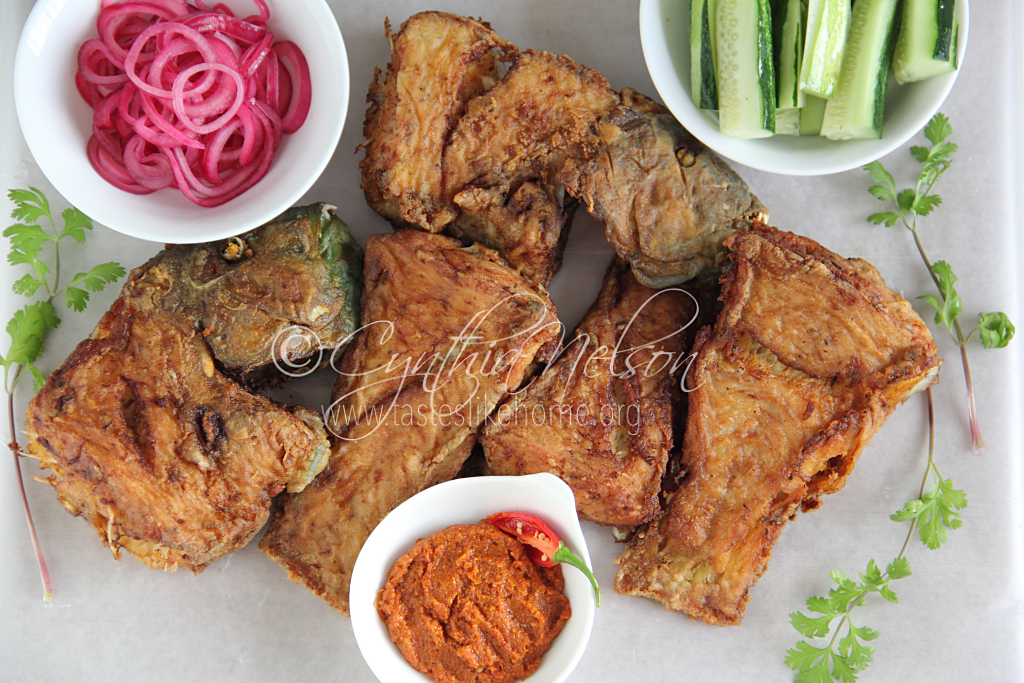 What’s Cooking is a series in which I answer questions and share advice about food and cooking that you have but may be too shy to ask.
What’s Cooking is a series in which I answer questions and share advice about food and cooking that you have but may be too shy to ask.
Lime and salt are two ingredients that give us so much flavour and taste but when used unwisely, when we let them overstay their welcome, they rob us of those exact qualities – flavour and taste. But let’s put the blame where it belongs, with us, cooks. Caribbean people especially, overdo it when it comes to liming and salting our seafood, poultry, and meat all in the name of cleanliness. Here’s the bottom line, if your fish, chicken, beef, pork or lamb smells so offensive that you have to lather it in lime and salt, chances are that it’s not good and you should not cook it.
The addition of lime and salt to seafood and poultry was born in an era when there was no refrigeration. That is certainly not the case now, but the fact is that some old habits are hard to die.
Most people who worship at the altar of lime and salt will tell you that the reason they lime and salt their proteins before seasoning and cooking, is to get rid of the rankness, some refer to it as that “fresh smell”. The fact is that the smell of your seafood, poultry or meat should be almost non-existent. There should never be an offending odour. Like I said, if there is, then your purchase is not fresh. But I know that many people buy fresh ingredients and still subject them to an onslaught of lime and salt, and it is not so much that the ritual of liming and salting takes place, but it is the amount of time that the fish or meat is spent in this concoction that is alarming. I’ve heard tales of people liming and salting fish for an hour. One woman told me she put her meat and chicken in lime and salt for two hours! And on yet another occasion I heard of meat being in lime and salt overnight in the refrigerator. I. Am. Not. Joking.
While I do not have grand designs of starting a revolution of no lime and salt with this column, my people, all across the length and breadth of the Caribbean, and those of you in the diaspora too, all I ask is that you read this column with an open mind. If I can free just one person from his or her obsession with lime and salt, then my job for today is done; but the work, nevertheless, continues.
Seafood, poultry, or meat, marinating or as we like to say, soaking in a mixture of lime and salt for a prolonged period will result in the protein being cooked in some way. Fish and shrimp would be cooked through in no time due to the natural tenderness of the flesh and this would be evidenced by how white or opaque it becomes. With poultry and meat, you will notice the edges and surface turn grey or white; the outer texture will change, becoming a bit mushy and easy to rub off. What has taken place here is that the acidity of the lime juice has cooked the protein and the salt used in conjunction with the lime has drawn out a lot of the natural moisture. Not only do lime and salt cook protein partially, and in some cases, fully, but they also close up the pores on the surface that allow seasonings to penetrate and enhance the natural flavour of the meat or seafood.
Many cooks resort to making deep gashes, incisions, and pockets in the flesh of fish and meat, and generously filling them with pastes like green seasoning in an effort to season and impart some flavour to the protein. However, when this is done, all it means is that you, your family, and guests will find themselves biting into raw or undercooked seasoning as they tuck into their seafood, poultry, or meat. The natural flavour that distinguishes it is lost, gone. As a result, all you taste upfront is the raw, undercooked seasoning that overpowers.
Before I go on, let me be clear that there are many places for lime and salt to be used in tandem when preparing certain dishes such as ceviche – a dish of raw fish or shrimp marinated in lime juice along with onions, tomatoes, and peppers. There are certain Caribbean fish dishes as well where the lime juice, salt and herbs are used to create a specific flavour such as Dominica’s Fish Coubouillon where the fish has to marinate for 2 hours in lime, water, salt, and pepper and then be cooked in the same liquid along with garlic and green onions that have been sautéed in butter. Lime and salt along with oil and herbs are also used as marinades and in some cases poaching liquids for certain preparations, and in each case, there is an exacting amount of time for which to marinate; cooks and recipes will warn you that if you leave it longer than the prescribed time, it will start to cook and ruin the flavour.
The point I’m making is this, unless you are preparing a dish where lime and salt are an integral part of the flavour of the dish, then marinating or soaking fish and meat for a long period of time in such an acidic and salty environment, for the sake of cleaning it, will ruin the natural flavour and texture.
Still skeptical, right? Shaking your head and saying, ‘Cynthia can talk all she likes but I am not going to stop putting lime and salt in my fish and meat.’ Okay, but try this. Let’s start by ensuring that what we’re buying is fresh. Don’t be afraid to put the fish close to your nose and smell it. Check the gills that they’re bright red or pink, the skin shiny, the flesh firm. Fresh shrimp should be firm and glossy. Those of you who live in places where fish is caught and sold daily know just by looking at the fish whether or not it is fresh. Once your fish has been gutted, filleted or cut up and you take it home to cook, do this – fill a large bowl with water, squeeze the lime juice into the water, (you don’t need to add salt but if you must, sprinkle in some) quickly dip your fish into the water give it a swirl or two in the water for about 5 seconds only, remove it, immediately rinse with fresh clean water, pat dry and proceed with your recipe.
What about the chicken and meat? Honestly, as long as your purchases are fresh, it is not necessary to clean it with lime and salt either, however, I would suggest you wipe them clean with damp paper towels. If that’s not good enough for you, then go ahead and rinse in either plain water or a lime water bath as suggested above for seafood. Be sure to pat the meat dry before seasoning and using.
Cynthia
cynthia@tasteslikehome.org

